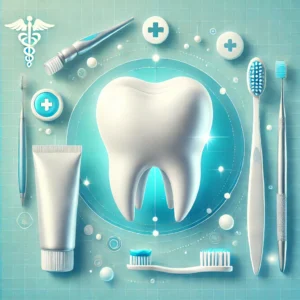Introduction:
The importance of antioxidants in health care has gained significant attention in recent years. Their role in maintaining overall health and preventing chronic diseases has been widely recognized. Antioxidants are naturally occurring compounds found in various foods, and their primary function is to neutralize free radicals in the body. Free radicals are unstable molecules that can cause damage to cells, leading to various health issues, including aging, cancer, and heart disease. The growing awareness of antioxidants’ benefits has led to an increased focus on incorporating them into daily diets, highlighting their crucial role in promoting long-term health and well-being.
In the context of health care, antioxidants are not only vital for their protective effects against oxidative stress but also for their potential in enhancing the body’s immune response. The human body is constantly exposed to environmental factors that can lead to the production of free radicals, and without adequate antioxidant defenses, these free radicals can overwhelm the body’s natural ability to repair itself. This imbalance between free radicals and antioxidants can result in oxidative stress, a condition linked to numerous chronic diseases. By understanding the role of antioxidants in health care, individuals can make informed dietary choices that support their overall health and reduce the risk of developing various health conditions.
The Mechanisms of Antioxidants in Protecting the Body:
Antioxidants play a crucial role in protecting the body from oxidative stress, which is caused by an imbalance between free radicals and the body’s ability to counteract their harmful effects. Free radicals are highly reactive molecules that can damage cellular structures, including DNA, proteins, and lipids. When left unchecked, this damage can lead to chronic inflammation, accelerated aging, and the development of diseases such as cancer, cardiovascular disease, and neurodegenerative disorders. Antioxidants neutralize free radicals by donating an electron, effectively stabilizing these reactive molecules and preventing them from causing further harm to the body’s cells and tissues.
In addition to neutralizing free radicals, antioxidants also help repair the damage caused by oxidative stress. Some antioxidants, such as vitamin C and vitamin E, have the ability to regenerate other antioxidants, enhancing the body’s overall antioxidant defense system. This synergistic effect allows for a more robust protection against oxidative damage. Moreover, antioxidants are involved in various cellular processes that support immune function, reduce inflammation, and promote the body’s natural detoxification pathways. By understanding the mechanisms through which antioxidants protect the body, individuals can better appreciate the importance of including antioxidant-rich foods in their diets.
The Importance of Antioxidants in Supporting Immune Health and Combating Seasonal Illnesses:
“Antioxidants play a crucial role in bolstering the immune system, particularly in preventing and managing seasonal illnesses such as colds and flu. During periods of increased susceptibility to infections, the body’s immune response can be significantly enhanced by a diet rich in antioxidants. These compounds help protect immune cells from oxidative damage, ensuring they function optimally in identifying and neutralizing pathogens. Vitamins C and E, along with other antioxidants, are particularly effective in reducing the severity and duration of common illnesses by supporting the body’s natural defense mechanisms.
In addition to their immune-boosting properties, antioxidants contribute to overall respiratory health, which is often compromised during colder months. By reducing inflammation in the airways and supporting the integrity of lung tissues, antioxidants help maintain respiratory function and reduce the risk of complications associated with seasonal illnesses. Incorporating antioxidant-rich foods into one’s diet during flu season not only aids in recovery but also serves as a preventative measure, helping to keep the immune system resilient against recurring infections.” – Tiffany Payne, Head of Content at PharmacyOnline.co.uk
The Role of Antioxidants in Oral Health and Preventing Gum Disease:
“Antioxidants are essential in maintaining oral health, particularly in preventing and managing gum disease. The tissues in the mouth are constantly exposed to bacteria and other harmful agents that can lead to inflammation and infection. Antioxidants help protect these tissues by neutralizing free radicals, reducing inflammation, and promoting healing. Vitamins C and E, commonly found in antioxidant-rich foods, are especially effective in supporting the health of gums and preventing conditions like gingivitis and periodontitis.
Additionally, antioxidants contribute to overall dental health by protecting the enamel and reducing the risk of cavities. Oxidative stress can weaken the enamel, making teeth more susceptible to decay. By incorporating antioxidants into the diet, individuals can enhance their oral health, ensuring strong teeth and healthy gums. This not only prevents common dental issues but also supports a healthier, more resilient mouth, reducing the need for extensive dental treatments.” – Dr. Mark Flynn, Principal Dentist & Clinic Owner At The Modern Dentist
How Antioxidants Contribute to Skin Health and the Prevention of Premature Aging:
“Antioxidants are vital in maintaining skin health and preventing the visible signs of premature aging. The skin is constantly exposed to environmental stressors like UV radiation and pollution, which generate free radicals that can damage skin cells and accelerate the aging process. Antioxidants, particularly vitamins C and E, help neutralize these free radicals, protecting the skin from oxidative stress and reducing the appearance of wrinkles, fine lines, and age spots.
Moreover, antioxidants support the skin’s natural repair mechanisms by promoting collagen production and improving skin elasticity. This not only helps in maintaining a youthful appearance but also enhances the skin’s ability to heal and recover from damage. By including antioxidant-rich foods in their diet, individuals can contribute to healthier, more resilient skin, slowing down the aging process and reducing the need for more invasive treatments to maintain a youthful complexion.” – Dr. Darren Smith, Founder at Darren Smith Md
The Impact of Antioxidants on Overall Wellness and Nutritional Supplementation:
“Antioxidants play a significant role in supporting overall wellness, particularly when incorporated into a balanced nutritional regimen. While a diet rich in fruits, vegetables, and whole grains provides a natural source of antioxidants, supplementation can also be beneficial, especially for individuals with specific dietary needs or those looking to enhance their antioxidant intake. These supplements can help bridge nutritional gaps, ensuring that the body receives adequate levels of essential antioxidants to combat oxidative stress and support long-term health.
Furthermore, antioxidants obtained through supplementation can complement a healthy lifestyle by providing targeted support for various bodily functions, including immune response, cardiovascular health, and cognitive function. For those seeking to optimize their wellness, the strategic use of antioxidant supplements can be a valuable addition to a holistic approach to health, helping to protect against chronic diseases and promote vitality. Integrating these supplements thoughtfully into a daily routine can ensure that the body’s antioxidant defenses remain robust and effective.” – Carl Panepinto – Head of Marketing at Sealions
Conclusion:
The role of antioxidants in health care cannot be overstated, as they are essential for protecting the body against the harmful effects of oxidative stress. Through their ability to neutralize free radicals, support immune function, and reduce inflammation, antioxidants contribute significantly to overall health and well-being. A diet rich in antioxidant-containing foods, such as fruits, vegetables, nuts, and seeds, provides the necessary nutrients to support the body’s antioxidant defenses and reduce the risk of chronic diseases. Furthermore, understanding the sources and health benefits of antioxidants allows individuals to make informed dietary choices that support long-term health. In light of the growing evidence supporting the importance of antioxidants in health care, it is clear that they should be an integral part of any nutritional strategy aimed at promoting optimal health and preventing age-related diseases.





















+ There are no comments
Add yours